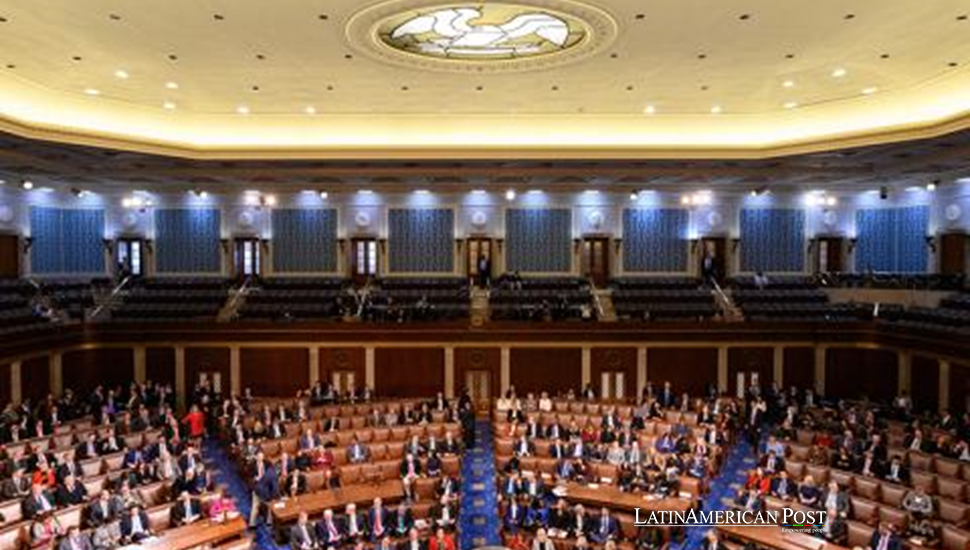Record Number of Latinos to Serve in the Senate

Latino representation in the U.S. Senate is reaching new heights, increasing from five to seven members in the 119th Congress. This milestone highlights the rise in the importance of Latino leaders. Hispanic seats in the House have slightly decreased, but influence is still growing. Leaders are gaining more power and recognition. This is significant.
Historic Wins in the Senate
The upcoming 119th Congress marks a significant step forward for Latino representation in the U.S. Senate. The number of Latino senators reached a record-breaking seven, including two newly elected senators: Democratic Representative Ruben Gallego from Arizona and Republican businessman Bernie Moreno from Ohio. These historic wins are a source of pride and optimism for the Latino community.
Gallego, a veteran and former U.S. Representative, made history as Arizona’s first Latino senator after defeating Kari Lake in a hard-fought race. His victory is the fourth win for Democrats in Arizona’s Senate races. This victory puts Senator Kyrsten Sinema’s replacement in the spotlight after she changed from Democrat to Independent. Gallego’s win shows the growing power of Latino communities in crucial swing states.
In Ohio, a Colombian immigrant and successful car dealer, Bernie Moreno, defeated the longtime Democratic Senator Sherrod Brown. Moreno is the first Latino and person of color in Ohio’s Senate. President-elect Donald Trump supported him. The campaign focused on issues important to the people of Ohio and showed his very successful immigrant story.
These victories shifted the Senate’s party balance among Latino members. Now, four Democrats and three Republicans represent Latino interests. However, if Senator Marco Rubio of Florida is confirmed as Secretary of State under the new administration, the number of Latino senators could drop to six, potentially affecting the balance of power and representation in the Senate.
Mixed Results in the House
While the Senate saw gains, Latino representation in the House of Representatives experienced a slight decline, dropping from 48 to 45 members. Despite this reduction, the 119th Congress includes groundbreaking wins for Latino lawmakers nationwide.
Among the notable victories is Democratic state Senator Nellie Pou from New Jersey, who became the first Latina to represent the state in Congress. Pou was selected to replace the late Representative Bill Pascrell on the ballot and defeated her Republican opponent, Billy Prempeh, in the 9th Congressional District.
In Colorado, Republican challenger Gabe Evans narrowly unseated freshman Democratic Representative Yadira Caraveo in a heavily Hispanic district. Evans, now the state’s first Latino Republican elected to a full term, brings a new dimension to Latino representation in the GOP.
Meanwhile, in Washington state, Democratic state Senator Emily Randall made history as the first openly queer Latina elected to Congress, representing the 6th Congressional District. Former San Jose Mayor Sam Liccardo broke barriers as the first Latino representing a Northern California district in over 120 years.
Latino Representation: Progress Amid Challenges
The achievements of Latino candidates in the 2024 election highlight progress and ongoing challenges in representation. The National Association of Latino Elected and Appointed Officials (NALEO) emphasized that while Latino seats in the House decreased, the historic wins on both sides of the aisle reflect the resilience and determination of Latino leaders.
These milestones come against a backdrop of growing Latino political engagement. Latino voters now represent nearly 20% of the U.S. population. This change has led to more participation and influence in elections. Still, gaps continue, especially in states. In some places, Latinos are underrepresented in government compared to their numbers.
Looking Ahead to the 119th Congress
The 119th Congress includes 52 Latino members, a testament to the excellent progress made by Hispanic leaders from various political backgrounds. These members come from 12 states, reflecting the diverse backgrounds and priorities of the Latino community. This diversity ensures that all voices are heard and represented in the political arena.
The 119th Congress includes 52 Latino members. This number shows significant progress by Hispanic leaders from different political backgrounds. They come from 12 states. This variety reflects the diverse backgrounds and priorities of Latino people.
More Latino members bring new opportunities and duties. Latino lawmakers hold an important position. They are tasked with solving critical issues like immigration reform, education fairness, and economic challenges, which often affect Hispanic communities more. The weight of these responsibilities underscores the importance of their roles in American politics.
Ruben Gallego, Bernie Moreno, and others are ready to start their roles. Their victories matter in American politics. The Senate gains and House wins highlight the growing influence of Latino voices in shaping the nation.
Also read : Overlooked Gun Flow from U.S. Fuels Violence Across Latin America
The record number of Latino members in the 119th Congress marks a pivotal moment in U.S. history. Challenges still exist, but the successes of Latino candidates show real progress and hope for a more inclusive political scene. As these leaders settle into their roles, they will shape policy and inspire future leaders in the expanding Latino community.





